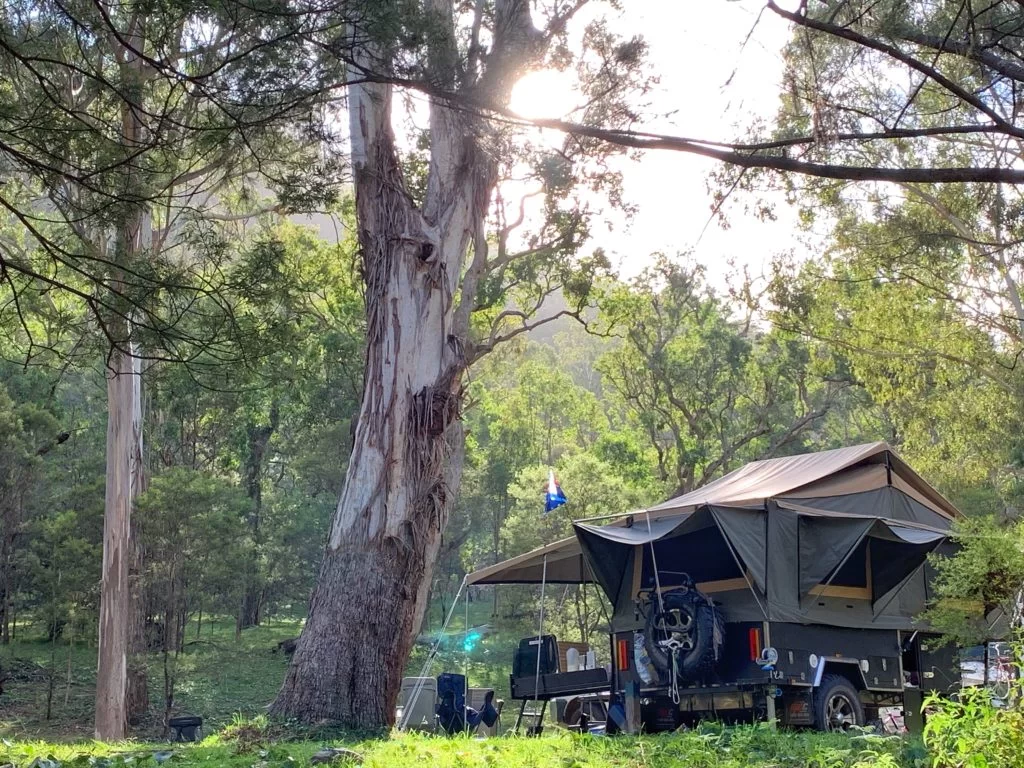Learn how to manage waste effectively while camping off-grid. Discover eco-friendly and sustainable camping tips for waste disposal, ensuring a safe and responsible outdoor experience.

How to Manage Waste While Camping Off-Grid
- Why Waste Management Matters in the Wilderness
- Types of Waste to Manage While Camping Off-Grid
- Eco-Friendly Waste Management Tips
- Dealing with Human Waste in the Wilderness
- Disposing of Other Camping Waste
- Sustainable Camping Gear for Waste-Free Adventures
Why Waste Management Matters in the Wilderness
Camping off-grid offers a refreshing escape from the hustle of daily life, but it also comes with the responsibility of minimizing your environmental impact. Waste management is an essential part of off-grid camping, ensuring that nature remains unspoiled for future adventurers.
When camping in remote areas, your waste doesn't just disappear. If not properly handled, it can harm wildlife, pollute water sources, and disrupt fragile ecosystems. By learning how to manage waste responsibly, you'll help preserve the wilderness for others to enjoy.
Types of Waste to Manage While Camping Off-Grid
When you're camping off-grid, there are several types of waste to consider. These include:
- Human Waste: Managing human waste is the most important aspect of off-grid camping. Improper disposal of human waste can lead to contamination of water sources and cause lasting damage to the environment.
- Food Waste: Leftover food can attract wildlife and disrupt the balance of local ecosystems. Proper disposal of food waste is crucial to prevent unnecessary harm.
- Packaging Waste: Packaging materials like plastic wrappers, cans, and bottles can linger in the environment for years. It's important to pack out everything you bring with you.
- Cleaning Waste: Soap, detergents, and other chemicals used for washing dishes or cleaning gear can be harmful to the environment if not disposed of properly.
Managing these different types of waste will ensure your camping trip remains environmentally responsible and enjoyable.
Eco-Friendly Waste Management Tips
To minimize your impact while camping off-grid, follow these eco-friendly waste management tips:
- Pack It In, Pack It Out: One of the golden rules of off-grid camping is to carry out everything you bring with you. This includes trash, food scraps, and any other waste. Use durable, reusable containers to avoid generating excess waste.
- Use Biodegradable Products: If you need to use soap or shampoo, choose biodegradable options that break down naturally and don't harm the environment.
- Bring a Trash Bag: Always carry a heavy-duty trash bag for waste disposal. Make sure to seal it tightly before leaving the campsite, so animals cannot access it.
- Leave No Trace: Follow the Leave No Trace principles, which emphasize reducing your impact on the environment. This includes staying on established trails, avoiding damage to vegetation, and leaving the area as you found it.
By adhering to these guidelines, you'll help protect the environment while enjoying the beauty of the wilderness.
Dealing with Human Waste in the Wilderness
Human waste is one of the most challenging aspects of off-grid camping. In areas without established restrooms, you must plan ahead to manage waste responsibly:
- Use a Portable Toilet: A portable toilet is a convenient and hygienic solution for dealing with human waste. Be sure to carry the proper bags and chemicals to dispose of waste safely.
- Dig a Cat Hole: If you don't have a portable toilet, dig a “cat hole” for your waste. This should be at least 6-8 inches deep and located at least 200 feet from water sources, trails, and campsites.
- Pack Out Waste: For areas with sensitive ecosystems, consider using a waste disposal bag, like a WAG bag, which allows you to pack out your waste and dispose of it properly when you return to civilization.
Proper human waste management is crucial to maintaining the cleanliness and health of the environment. Always follow local guidelines and be prepared before heading out into the wilderness.
Disposing of Other Camping Waste
Beyond human waste, there are several other types of waste to consider while camping off-grid:
- Food Waste: When preparing food, make sure to dispose of food scraps properly. Compostable materials can be buried in a cat hole, while non-compostable waste (like meat scraps) should be packed out.
- Cleaning Water: Always dispose of dishwater at least 200 feet from any water sources. Use biodegradable soap and strain food particles from the water before disposal.
- Packaging Waste: Avoid single-use plastic packaging and opt for reusable containers when packing food and supplies. Pack out all waste, including empty containers and wrappers.
By carefully managing all types of waste, you can ensure that your off-grid camping experience remains environmentally responsible and enjoyable for everyone.
Sustainable Camping Gear for Waste-Free Adventures
Choosing sustainable camping gear can significantly reduce your environmental impact. Some gear options to consider include:
- Reusable Water Bottles and Containers: Minimize single-use plastic by bringing refillable bottles and containers for water and food.
- Biodegradable Toiletries: Opt for eco-friendly soap, shampoo, and toothpaste that won't harm the environment when used outdoors.
- Portable Solar Chargers: Instead of relying on disposable batteries, bring a solar-powered charger to keep your devices powered while reducing waste.
With the right gear, you can enjoy a zero-waste adventure while camping off-grid, ensuring that your trip is both fun and environmentally conscious.
Ready to head off the beaten path and explore the wilderness? Be sure to plan your trip with responsible waste management in mind. Want to experience the beauty of the outdoors while minimizing your environmental footprint? Visit Pine Cliff Resort for eco-friendly camping options and more sustainable adventures.
Chase Shorts Camp
N Atlantic St, Tullahoma, TN 37388, USA
Visit Location PageOsprey Campground
Watersmeet, MI 49969, USA
Visit Location Page